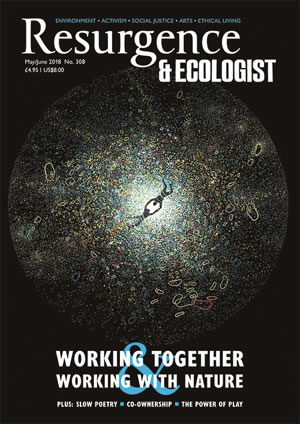At a time when the world feels closer to nuclear war than it has in decades, it’s welcome to receive a collection of essays and interview transcripts called Voices for Peace – a book that promises some hope, and perhaps even a little strategy, for pulling ourselves back from this brink. Sadly, despite its subtitle, it is light on ‘resistance’. Aside from an inspirational missive from Brian Terrell on breaking into Whiteman Air Force Base, there isn’t much on anti-war activism or arguments for peace. Instead, the pieces fixate on the ills of American imperialism, and its “quest for full-spectrum dominance”.
Given the importance of American imperialism in global warfare, I have some sympathy with the collection’s focus. However, by framing the quest for US hegemonic dominance as the primary driver of conflict, the collection ends up hitting the odd note of portraying war as an inherently rational act. Sure, former president Obama’s “pivot to Asia” may have been both immoral and undesirable, but if global dominance is what you want, militarisation and war is at least a cogent, strategic approach. What this collection lacks is an exploration of the frequent irrationality of war: the bizarre belief of some politicians that you can bomb your way to peace.
Think of Iraq. While driven by a clear neo-imperialist scramble for resources, one can’t ignore the fact that Britain’s then prime minister, Tony Blair, seemed to hold a sincere conviction that you could utterly obliterate a country and that western democratic values could then somehow be raptured from the rubble. This sort of apocalyptic evangelism is arguably more chilling than the sheer drive to power displayed by the US military complex, but it gets short shrift here, aside from highlighting ‘blowback’ in the form of international terrorism.
Almost inevitably in a book about war in the age of President Trump, the tiresome ‘Hillary [Clinton] would have been worse’ line of thought rears its head once or twice, somehow managing to ignore Trump’s swift switch from isolationism to brinkmanship. Similarly, whilst it is not trite to protest that extrajudicial drone killings skyrocketed under Obama, it is a shame to see John Pilger sully the point by using it as ammunition against the left’s so-called preoccupation with identity politics.
In making no moral distinction between former president George W. Bush and Obama, and between Clinton and Trump, the book skirts around a fairer point: the idea that the person acting as US president at any given time is almost incidental to the war machine. The drive for dominance is deeply ingrained through the apparatus of government, and forms an important part of any modern-day presidency. We saw this evidenced when Trump ordered the dropping of the “Mother of All Bombs” in Afghanistan in April 2017. After months of worrying about his 5am tweets, his sexual assaults, and the incompetence of his White House, many Americans were at last reassured. Finally, they thought, he is beginning to seem presidential.
One of the book’s finest points comes during T.J. Coles’ introduction, arguing that “from an elite perspective, it is better to portray the world as relentlessly cruel and people as wholly self-interested, as the media do.” Here, war is identified as a key part of the neoliberal order – helping to portray a Hobbesian hell of all against all as the natural order of things, with no space to imagine a world based on cooperation. It is a pity this is not explored further, not least because it might have teased out strategies for achieving peace, rather than just railing against US dominance. Nonetheless, it is an encouraging message for these dark times: fight neoliberalism, and we fight war too.






